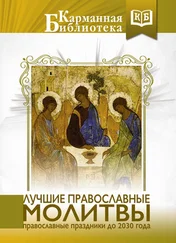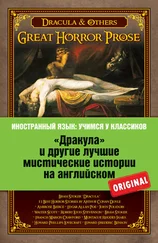And the evening closed in upon me thus – and then the darkness came, and tarried, and went – and the day again dawned – and the mists of a second night were now gathering around – and still I sat motionless in that solitary room – and still I sat buried in meditation – and still the phantasma of the teeth maintained its terrible ascendancy, as, with the most vivid hideous distinctness, it floated about amid the changing lights and shadows of the chamber. At length there broke in upon my dreams a cry as of horror and dismay; and thereunto, after a pause, succeeded the sound of troubled voices, intermingled with many low moanings of sorrow or of pain. I arose from my seat, and throwing open one of the doors of the library, saw standing out in the antechamber a servant maiden, all in tears, who told me that Berenice was – no more! She had been seized with epilepsy in the early morning, and now, at the closing in of the night, the grave was ready for its tenant, and all the preparations for the burial were completed.
* * *
I found myself sitting in the library, and again sitting there alone. It seemed that I had newly awakened from a confused and exciting dream. I knew that it was now midnight, and I was well aware, that since the setting of the sun, Berenice had been interred. But of that dreary period which intervened I had no positive, at least no definite comprehension. Yet its memory was replete with horror – horror more horrible from being vague, and terror more terrible from ambiguity. It was a fearful page in the record of my existence, written all over with dim, and hideous, and unintelligible recollections. I strived to decipher them, but in vain; while ever and anon, like the spirit of a departed sound, the shrill and piercing shriek of a female voice seemed to be ringing in my ears. I had done a deed – what was it? I asked myself the question aloud, and the whispering echoes of the chamber answered me, – ‘ What was it? ’
On the table beside me burned a lamp, and near it lay a little box. It was of no remarkable character, and I had seen it frequently before, for it was the property of the family physician; but how came it there , upon my table, and why did I shudder in regarding it? These things were in no manner to be accounted for, and my eyes at length dropped to the open pages of a book, and to a sentence underscored therein. The words were the singular but simple ones of the poet Ebn Zaiat: – ‘ Dicebant mihi sodales si sepulchrum amicae visitarem, curas meas aliquantulum fore levatas .’ Why, then, as I perused them, did the hairs of my head erect themselves on end, and the blood of my body become congealed within my veins?
There came a light tap at the library door – and, pale as the tenant of a tomb, a menial entered upon tiptoe. His looks were wild with terror, and he spoke to me in a voice tremulous, husky, and very low. What said he? – some broken sentences I heard. He told of a wild cry disturbing the silence of the night – of the gathering together of the household – of a search in the direction of the sound; and then his tones grew thrillingly distinct as he whispered me of a violated grave – of a disfigured body enshrouded, yet still breathing – still palpitating – still alive!
He pointed to my garments; they were muddy and clotted with gore. I spoke not, and he took me gently by the hand: it was indented with the impress of human nails. He directed my attention to some object against the wall. I looked at it for some minutes: it was a spade. With a shriek I bounded to the table, and grasped the box that lay upon it. But I could not force it open; and, in my tremor, it slipped from my hands, and fell heavily, and burst into pieces; and from it, with a rattling sound, there rolled out some instruments of dental surgery, intermingled with thirty-two small, white and ivory-looking substances that were scattered to and fro about the floor.
Walter Scott
The Tapestried Chamber
About the end of the American war, [52] The American War (1775–1783), или Война за Независимость – восстание 13 североамериканских штатов, не пожелавших оставаться колониями Великобритании.
when the officers of Lord Cornwallis’s army, which surrendered at Yorktown, and others, who had been made prisoners during the impolitic and ill-fated controversy, were returning to their own country, to relate their adventures and repose themselves after their fatigues, there was amongst them a general officer, to whom Miss S. gave the name of Browne, but merely, as I understood, to save the inconvenience of introducing a nameless agent in the narrative. He was an officer of merit, as well as a gentleman of high consideration for family and attainments.
Some business had carried General Browne upon a tour through the western counties, when, in the conclusion of a morning stage, he found himself in the vicinity of a small country town, which presented a scene of uncommon beauty, and of a character peculiarly English.
The little town, with its stately old church, whose tower bore testimony to the devotion of ages long past, lay amidst pasture and corn-fields of small extent, but bounded and divided with hedgerow timber of great age and size. There were few marks of modern improvement. The environs of the place intimated neither the solitude of decay nor the bustle of novelty; the houses were old, but in good repair; and the beautiful little river murmured freely on its way to the left of the town, neither restrained by a dam nor bordered by a towing-path.
Upon a gentle eminence nearly a mile to the southward of the town were seen, amongst many venerable oaks and tangled thickets, the turrets of a castle as old as the wars of York and Lancaster, but which seemed to have received important alterations during the age of Elizabeth and her successors. It had not been a place of great size; but whatever accommodation it formerly afforded was, it must be supposed, still to be obtained within its walls; at least such was the inference which General Browne drew from observing the smoke arise merrily from several of the ancient wreathed and carved chimney-stalks. The wall of the park ran alongside of the highway for two or three hundred yards; and, through the different points by which the eye found glimpses into the woodland scenery, it seemed to be well stocked. Other points of view opened in succession, now a full one of the front of the old castle, and now a side glimpse at its particular towers; the former rich in all the bizarrerie [53] bizarrerie – странность, причудливость (фр.) .
of the Elizabethan school, while the simple and solid strength of other parts of the building seemed to show that they had been raised more for defense than ostentation.
Delighted with the partial glimpses which he obtained of the castle through the woods and glades by which this ancient feudal fortress was surrounded, our military traveler was determined to inquire whether it might not deserve a nearer view, and whether it contained family pictures or other subjects of curiosity worthy of a stranger’s visit; when, leaving the vicinity of the park, he rolled through a clean and well-paved street, and stopped at the door of a well-frequented inn.
Before ordering horses to proceed on his journey, General Browne made inquiries concerning the proprietor of the château which had so attracted his admiration, and was equally surprised and pleased at hearing in reply a nobleman named whom we shall call Lord Woodville. How fortunate! Much of Browne’s early recollections, both at school and at college, had been connected with young Woodville, whom, by a few questions, he now ascertained to be the same with the owner of this fair domain. He had been raised to the peerage by the decease of his father a few months before, and, as the General learned from the landlord, the term of mourning being ended, was now taking possession of his paternal estate in the jovial season of merry autumn, accompanied by a select party of friends to enjoy the sports of a country famous for game.
Читать дальше
Конец ознакомительного отрывка
Купить книгу












